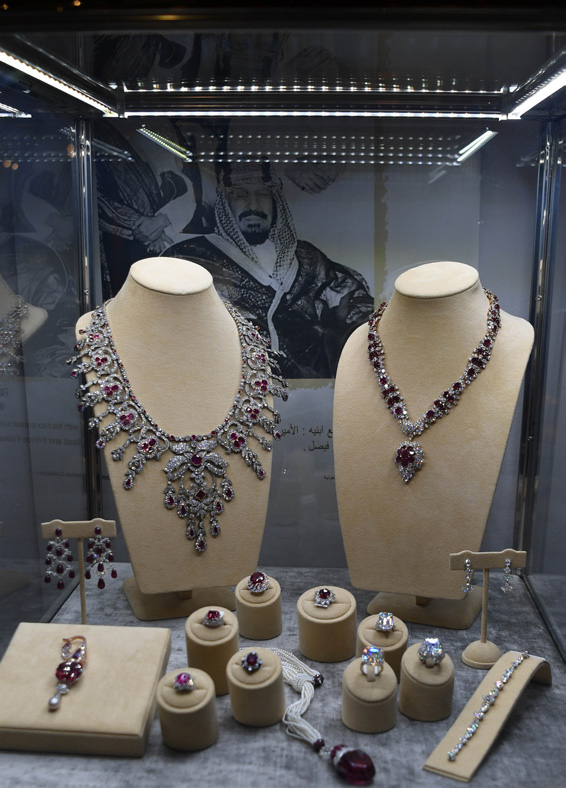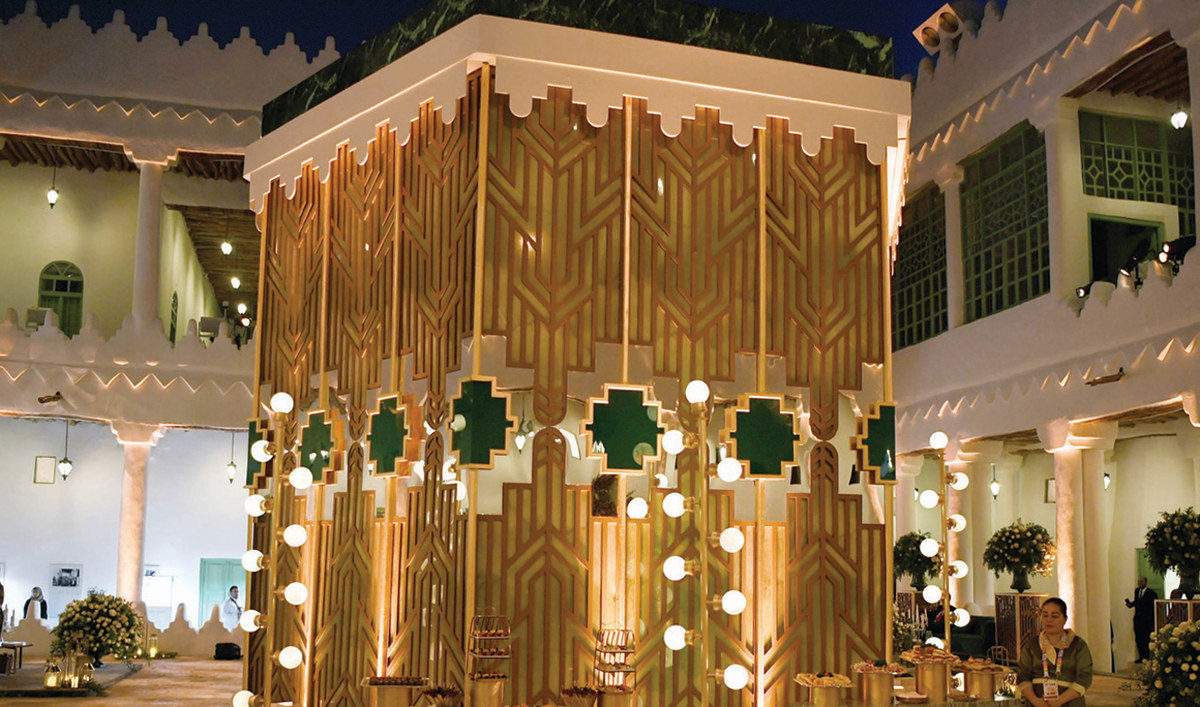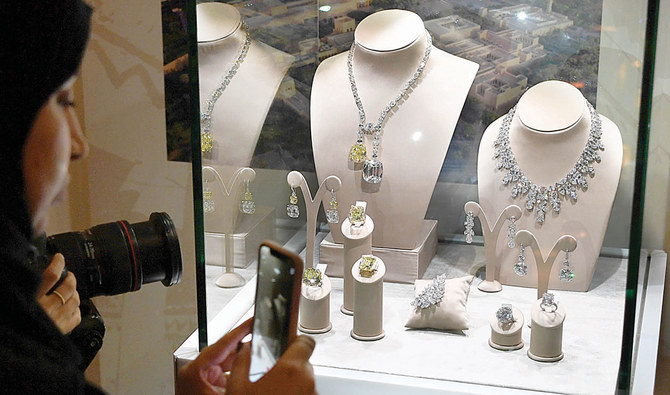RIYADH: In the heart of Riyadh city, Christie’s Jewelry Expo recently concluded its activities after five days.
The exhibition, which took place in the luxurious Al-Muraba Historical Palace, attracted a huge international and Arab audience.
The expo showcased more than 200 exceptional jewels, 32 distinctive watches and 17 rare handbags from 15 international brands and famous jewelers.
“This is by far the most important jewelry collection that was ever brought in an exhibition throughout the whole history of the company,” said David Warren, senior international director at Christie’s.
“We are delighted to be in a historical palace that relates to the culture of the Saudi people,” said Mei Y Gian, Christie’s private sales director.
The name of the event — “Unique Piece” — was chosen because the exhibition includes some of rarest precious stones, bags, watches and jewelry. The collection was designed by top international designers, and the price of some pieces reached SR5 billion ($1.3 billion).
 And since the exhibition theme is inspired by “Courts of Magnificence,” Al-Muraba Historical Palace is the perfect spot to showcase the beauty of the precious jewels.
And since the exhibition theme is inspired by “Courts of Magnificence,” Al-Muraba Historical Palace is the perfect spot to showcase the beauty of the precious jewels.
“The jewelry collection is made from the best brands in the world and some of the pieces were from traditional makers that no longer exist,” said Warren.
The extraordinary treasures cover different eras and styles right up to modern times.
Some of the pieces were made for men — like the ruby diamond necklace, which was made especially for an Indian prince. The necklace is one of the rarest and the earliest pieces in the exhibition.
“It’s the biggest collection of jewelry that Christie’s ever put together in all of our history,” said Warren.
The exhibition is showcasing five rare, flawless diamonds that are over 500 carats each.
“We brought the best of the best,” added Warren.
Ruqaiah Al-Jabbari, 22, said: “This is the first time I have attended an exhibition of this sophistication and luxury, and the first time I have seen such expensive jewelry.
“The palace was as smart and luxurious as the charming pieces of jewelry that were displayed in the exhibition.”
Visitors have enjoyed a once-in-a-lifetime luxurious experience at this fantastic Riyadh Season activity. But the world-famous arts group Christie’s is already considering its next chance to host an event in the Kingdom.
“We look forward to the next event, hopefully next year,” said Warren.





























